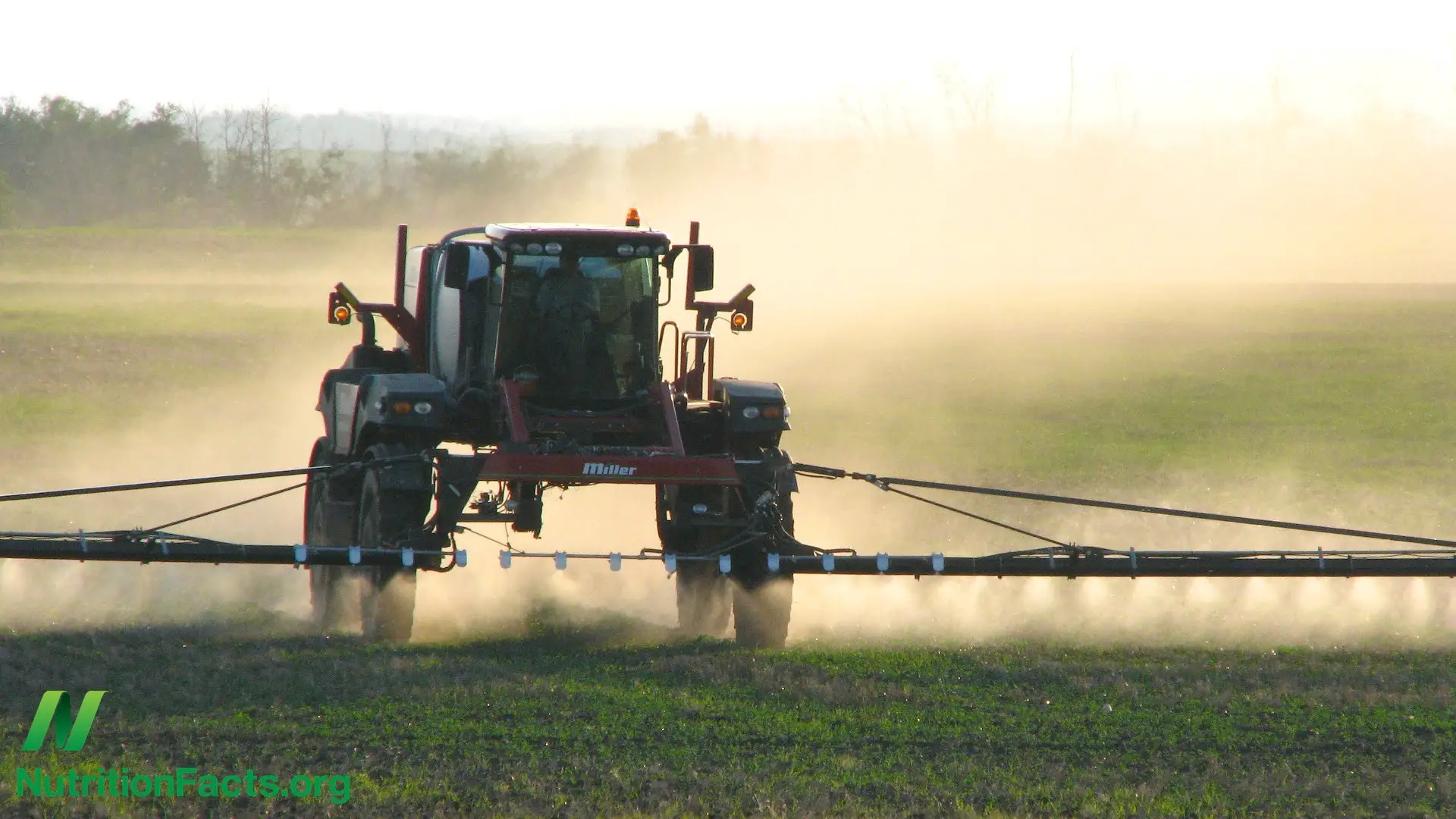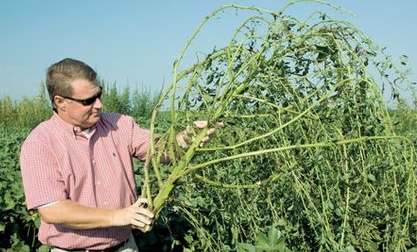
Total herbicide use on soybeans has been rising sharply according to new statistics.
The Monsanto Company has repeated ad nauseum that one of the main goals of its GMO crops is to use less pesticide, along with “feeding the world (which one recent report debunked).”
But newly released research from the 2015 National Ag Statistics Survey (NASS) has revealed that the pesticide claim may not be true after all — in regards to one of the major genetically engineered crops on the market, “Roundup Ready” soybeans, at least.
The soybeans, which make up over 90 percent of U.S. acreage for the commodity crop, are engineered in a lab to resist Roundup, Monsanto’s flagship herbicide whose main ingredient is glyphosate, a probable human carcinogen according to the World Health Organization.
And because of the of over-reliance on this chemical, farmers are now using more toxic herbicides (editor’s note: which are also classified as pesticides by the USDA) on soy than in recent memory.
Herbicide Use On the Rise in (Mostly GMO) U.S. Soybeans
According to the NASS results, GM soy farming in the United States has had the effect of increasing pesticide use over time, in this case potentially toxic herbicides that are able to kill weeds where Roundup cannot.
According to AgWeek.com which cited the NASS report, soybean producers are now spending a whopping 88 percent more on crop protectant products than they did last six years ago. In total, herbicide use has jumped by 61 percent from 2006 to 2015 on soy in the U.S.; GM soybean acreage increased by 30 percent in that time frame.
The shift to non-Roundup pesticides may be why Monsanto is so interested in potential mergers with other chemical companies, as Tom Philpott of Mother Jones recently hypothesized.
“Aside from seed expense, crop protection products (chemicals) are the most expensive input soybean producers pay for,” said Tong Wang, San Diego State University Extension Advanced Production Specialist. Wang said in the article above that farmers should “modify their pest management practices to include non-chemical options.”

A massive glyphosate resistant super weed. Photo via wellcommons.com.
Instead, many of them have simply been spraying more and more toxic chemicals.
In this case, the rise of the dreaded Roundup-resistant super weeds is forcing the hands of farmers who use Monsanto’s GM soy crops, necessitating the need for more spraying.
“The Nightmarish Super Weed That Can’t Be Killed”
In 2009 ABC News aired a landmark report dubbed ‘Super Weed That Can’t Be Killed,’ spotlighting the immense problems being caused by glyphosate resistant super weeds on farms in the southeast.
The problems have continued into the past few years and few solutions seem imminent, with most of them involving the use of more and more dangerous chemicals. Monsanto and other companies have worked to improve their “technology,” but most simply involve resistance to other harsh chemicals such as dicamba.
The ABC News report, which can be viewed here, shows how many farmers have been forced to hack down these massive glyphosate resistant pig weeds by hand, and to bring in scores of workers just to do the job. An even more dramatic example of happened recently in Texas where farmers made an emergency request to use a widely banned chemical to save over 3 million acres of mostly GM cotton.
Report Takes Aim at Super Weeds, Urges Change
A new report by the International Panel of Experts on Sustainable Food Systems (read here) has echoed those long-held concerns, stating that herbicide-resistant super weeds have become a serious problem while recommending a switch to ecological farming techniques.
Now that we know the truth about super weeds, GMOs and toxic herbicide use, the question is how much longer will farmers, consumers and the environment have to suffer before something is done?
Thanks for installing the Bottom of every post plugin by Corey Salzano. Contact me if you need custom WordPress plugins or website design.




